“Hell Den” Q&A: A Chat with Showrunner Neil Garguilo
One-third Beavis and Butthead, one third Mystery Science Theatre 3000, one-third something much stranger, Hell Den is the latest offering on DrinkTV by LA-based improv group Dr. God. After growing a successful hometown following, working on a commentary series called Mockpocalypse, and selling their first feature (2015’s Bloodsucking Bastards), the group partnered with the food and alcohol-based streaming service to become one of their launch programs. The series concerns the last boy left alive during the apocalypse and the friends he makes watching classic cartoons. I sat down with Dr. God co-founder and Hell Den Showrunner/Executive Producer Neil Garguilo to talk about the show.
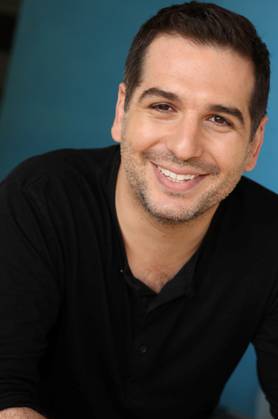
Zach Ezer: Let’s start at the beginning. How did this project come about?
Neil Garguilo: My comedy group Dr. God (Brian Ware, James O’Connell, David Park, and Sean Cowhig) sold a movie (Bloodsucking Bastards) at Slamdance to Shout! Factory a few years ago. We’ve maintained a relationship with them… and they said they were trying to do something in the world of redubbing. Something in the world of Mystery Science Theater 3000, but not something that is specifically [that show]. Something that lives in the world of using old public domain [cartoons]. So we hit on the idea that we could use them to tell a story, something using the world of sketch comedy to do it. Shout! agreed, so they put together a little teaser.
They were pitching it around for a few years, and we got very close at a few networks, and finally, we found—just as Super Troopers 2 was coming out—the guys from DrinkTV. I met them shortly thereafter about potentially getting an animated series on the network they were starting. They were going out for pants. They had never bought new suits before and were going to try some on, and I said ‘I’m going to go with you’. I wanted to tell them about the project, and I didn’t want to cut the meeting short. I watched them try clothing on, and kept pitching them—over the course of about five hours—and eventually, they pulled the trigger.
Wow. You have to admire that dedication.
[Laughs]. Thanks, it’s the only time in my life [I’ve] left the room with the person that [I was] pitching and continu[ed] the journey. That just tells you the kind of people they are: fun to be around and great to work for.
To that end, you’ve also done other work in the serialized content realm, Mockpocalypse, so what does working for up-and-coming streaming services been like?
It’s interesting because I’ve worked in television for a number of years, and working for a streaming service—especially one run by people with such a strong creative background—you are really able to get to make the work that you’re trying to make. There are very few restrictions; the notes process has less to do with censorship and more to do with project improvement. That is something that I really value in a place like DrinkTV.
Moving to Hell Den itself. This show and Mockpocalypse are both riffing to some degree. One has more specific source material and one is more topic-based. Is there any overlap in process or are you on two different tracks here?
Two different tracks completely. One is an unscripted, comedy-driven talking head format that is more direct commentary or storytelling, whereas Hell Den certainly has a commentary to it, but it is all scripted storytelling with a thin narrative line that runs through each episode. The ability to sit down and play in the short-form sketch comedy world with Hell Den has been so fun and certainly in line with things that we want to be making moving forward.
So how does the writers’ room work on a show like this?
That has been an incredibly fun part of the whole journey. I would say that a career highlight has been that writers’ room. My four best friends and I get the cartoons from a place called Thunderbean Animation where they re-master public domain cartoons, and they do such a great job. So they send us dozens and dozens of cartoons, then we all go off, watch them, and come up with ideas. Then we sit in a room, and we fill a board with hundreds of sketch ideas based on the preexisting content. How we would dub it, how we would layer graphics over it, how we could manipulate it. By the end, we have a corkboard with hundreds of sketches, and we start narrowing it down. It is very fun to debate the merits of a ten-second sketch based on a cartoon from 1910.
That must be interesting. What kinds of cartoons do you, specifically, prefer to riff on?
I think that finding the way in comes differently to each of us. For me, I tend to find a visual in and try to get to a clear punch line for an out. I know Brian O’Connell is very good at finding what is being discussed and manipulating the word slightly to change the meaning drastically. David Park is great at finding a musical story and running with that. Everyone has their own way in and then riffing off of each other once we have some foundation to work off of really provides a product that we’re really proud of.
It’s good to have a team that doesn’t double down on any single particular method or strength.
I think that while our approaches overlap, five different points of view meet at a place that makes us all laugh quite a bit.
You’re credited as the Showrunner. What does that mean on a show like this?
There are a lot of different points of view coming, and that means a lot of different sketches are being thrown out. It’s really organizing, trying to keep the episodes on theme, and delegating to the strengths of the great writers we have. Finally, it’s working with the editors to make sure that our fifteen minutes worth of sketches down to about nine and a half [minutes] for an eleven-minute episode. It’s really working with the other executive producers and the editors to make sure that the tightest nine-and-a-half minutes are getting into each episode/
Sounds like a challenge.
Another piece of it is working with our animator Matt Kiel and making sure that those narrative through lines in each episode are really popping. He doesn’t require a lot, he’s a talented guy, so it’s more checking in with him than it is guiding him.
Speaking of the animation style, the original stuff is very interesting in how grotesque it is. How did you decide on that?
I’ve been a huge fan of Matt for a number of years. I met him in the improv world five or six years ago. He was still a young guy, and he showed me what he had back then. It was warped, and it was something that was crazy and reminded me so much of childhood cartoons I grew up with. We started talking and working on pitches for a few shows, and when this show sold, we brought him on. We used a style that he was really comfortable with, with some light modifications, to get to a place where his voice visually was really represented and serving the show.
What was the process of developing all of your individual characters like?
We wanted to tell the story of the last little boy on Earth. In doing so, we were thinking of the characters that might come up in the various apocalypses that might occur. We looked at all the apocalypses. Giants rising from the volcano, four horsemen of the apocalypse, aliens attack, terminator style cyborgs tale over the Earth. Then we looked for likable characters from those worlds that the little boy could befriend. Who is the outcast from the world of the four horsemen? The fifth horseman. Who is the sympathetic figure of a Terminator-style overthrow? Someone who doesn’t necessarily fit in with the rest of the terminators. Finding that was a lot of fun.
I imagine a project like this takes a lot of research, not just what you’ve described, but also in old-school cartoons. What is your taste in older cartoons, even separate from what you might like to put in the show?
It’s like and hate because there are so many old-school cartoons that I love and appreciate, but what we’ve done with this show is steered clear of a lot of old-school cartoons because of the high levels of bigotry that they contain. Things that I think I didn’t necessarily realize as a child that had such messages attached to them, but watching them as an adult has been an eye-opening part of the process. So, yeah, it’s definitely complex emotions.
Some of it is pretty rough. Even some of the mainstream stuff.
Yeah, you’re correct. You don’t realize. You’re watching the Van Buren stuff that predates Tom and Jerry. Not the cat and mouse, but the two human beings. You watch four episodes of that show, and you’re like ‘this is a great early cartoon’, then you see another episode and the way it depicts African-American characters. You think ‘oh this is very difficult’ and those other episodes don’t hold the same weight to me that they did after seeing this episode.
I know you’ve just premiered season one. Do you know if there will be any more?
Not yet. We just premiered on Friday, and we’ve loved the process, and there are still so many old-school cartoons to work with. There is no shortage. That was an early question people always had for us, how many episodes we could do. I think, with the amount of public domain work that exists, we could do ten seasons. We’d love to do more, we’ll see how it performs.
If you were to get more, would you be interested in more guests?
Oh definitely. We had a very fast turnaround for season one. We did it in about two and a half months. We worked with some people we work with very closely, people from the improv world and actors we’ve worked with. We buckled down and got through it, but with success, there are so many people we’d love to work with, both people we’ve worked with over the years and others we haven’t but are dying to work with. We’ve admired some people for a long time, and that would be a very exciting part of continuing to work on the series.
If you had all the money in the world, but could only get one person, who would you want?
Oh wow. It’s funny because there are five of us, and we all probably have a different answer. For me, if I had to pick one fresh on the brain, I’d have to pick Dave Foley. I love Dave Foley, I had the fortune of meeting him one time, and it was very enjoyable. I’d love to revisit that.
Does Dr. God have anything else in the pipeline?
We are always doing our performances at the PATCH Theater in Hollywood on the fourth Saturday at every month. We also have our second feature in development right now, and we are excited to continue to push on a number of other projects that we have out pitching. Constant development, but nothing we can announce… right now.
Lastly, you gave me your dream guest, but if you didn’t have to stick to public domain, what cartoons would you be interested in dubbing?
Something I’d want to explore if we go into later seasons is cartoons from other countries. I’m not even talking about modern cartoons, but old cartoons. I’d really love to dive into old Japanese cartoons. Those are always interesting, and there are a few in Thunderbean’s collection. I’d say having a more international approach to the show going forward would be great.
There’s some interesting European stuff too.
Yeah, I think it’s interesting to see artists’ perspectives pre-internet and pre-sharability. It’s interesting to see just the influences of the artists in a region, and how different they are across the world. I find that so fascinating. ⊗
Hell Den is available now on DrinkTV. Neil Garguilo and his writers’ room are Dr. God Comedy, public domain cartoons are restored and supplied by Thunderbean Animation, and original animation is provided by Matt Kiel.
Read our review of Hell Den Season One here.
(Note: This interview has been lightly edited and condensed for clarity)

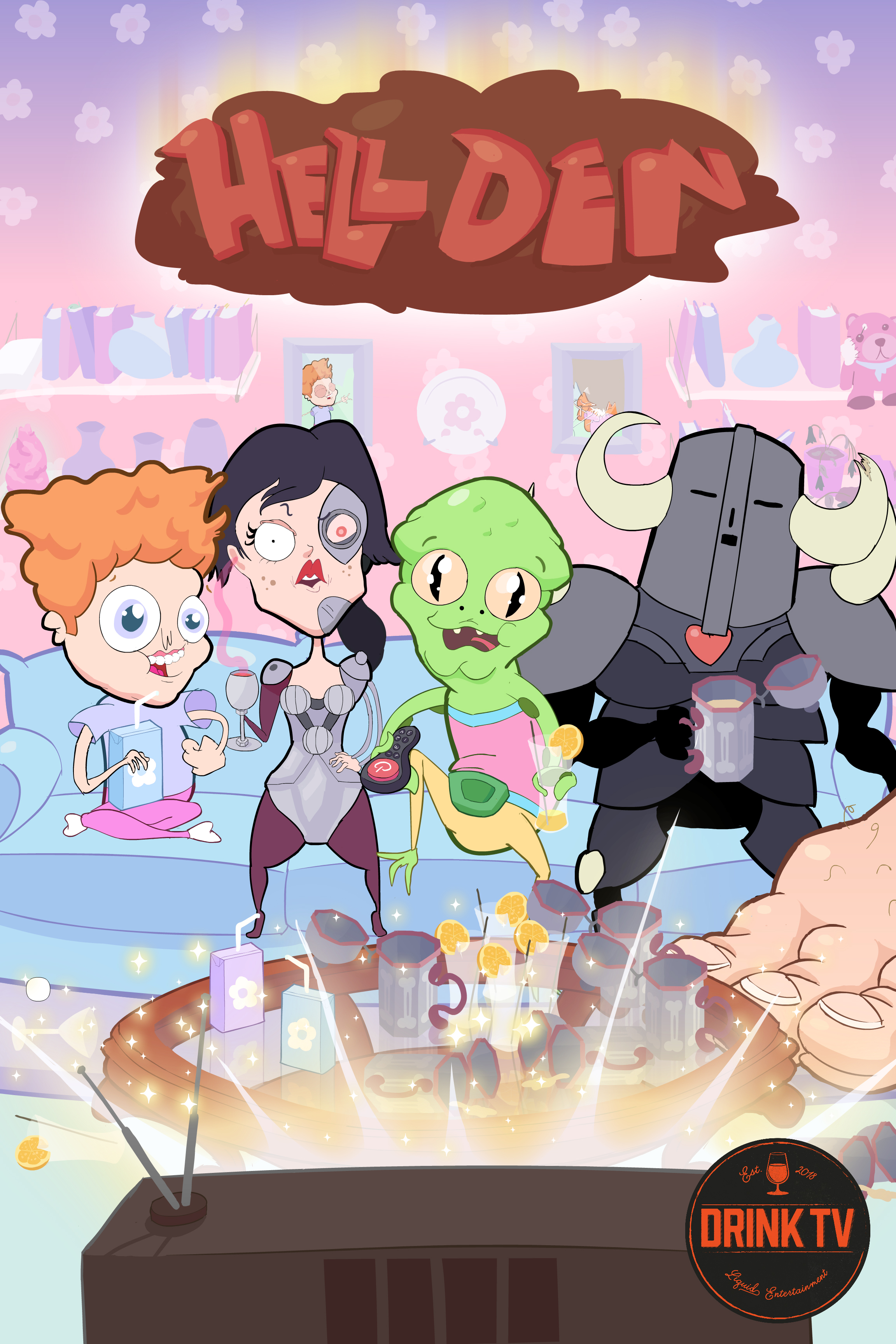
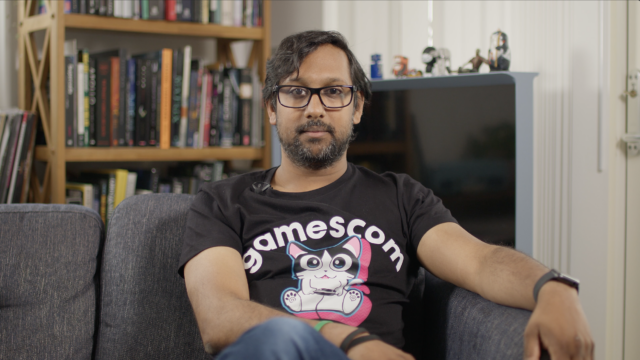

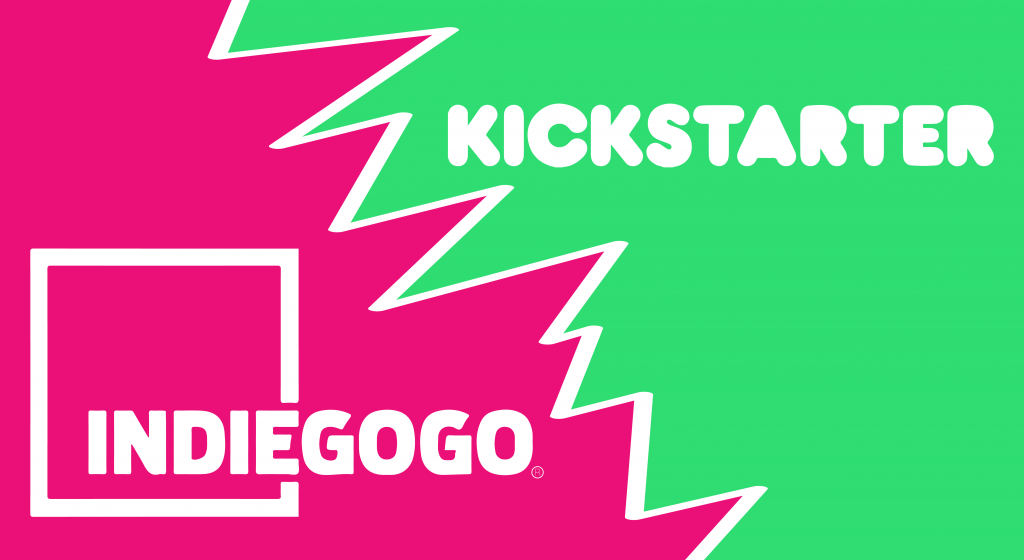
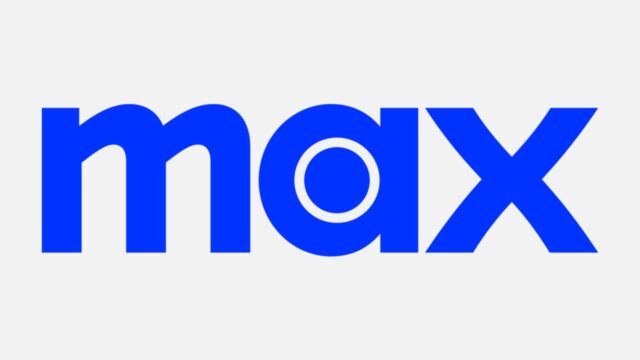

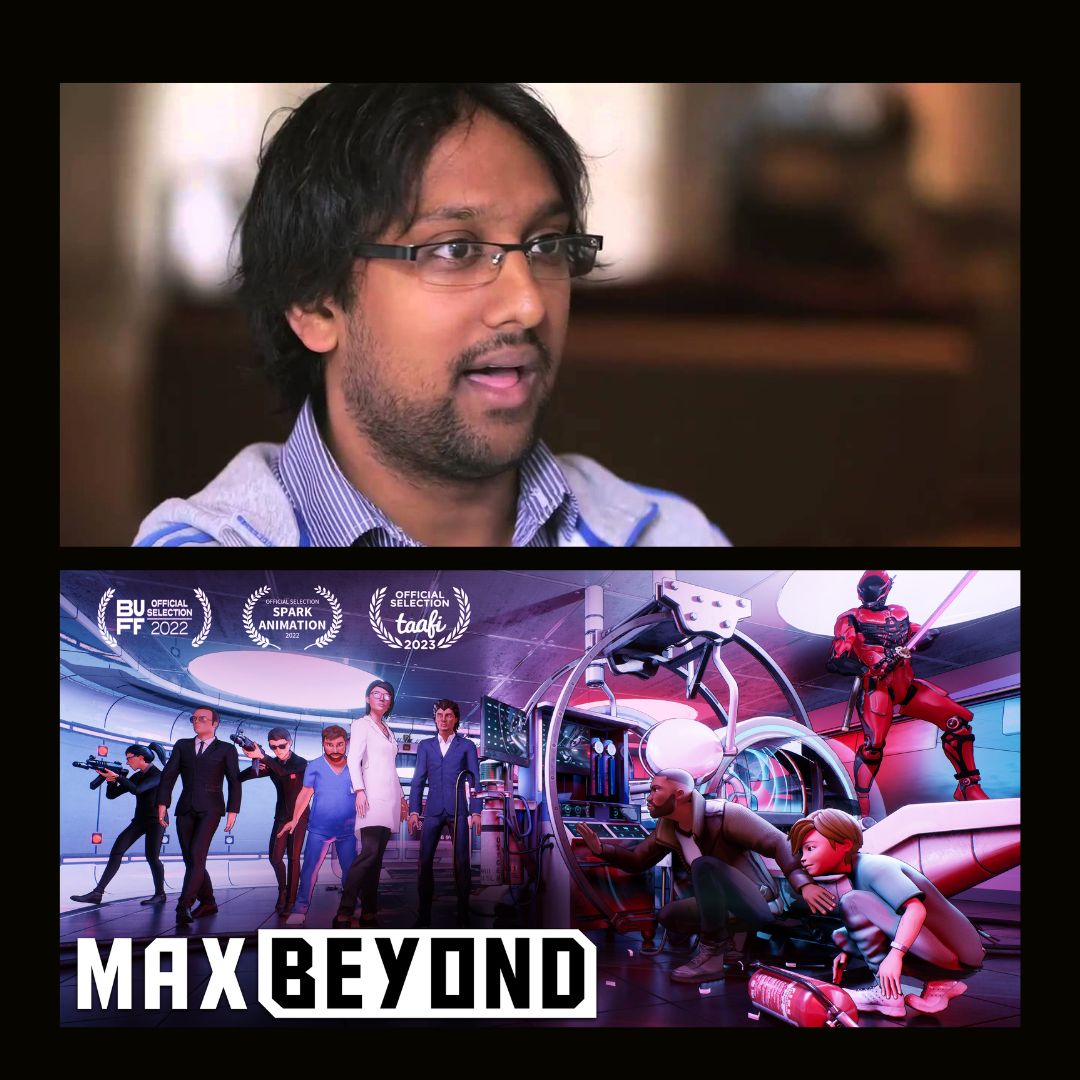







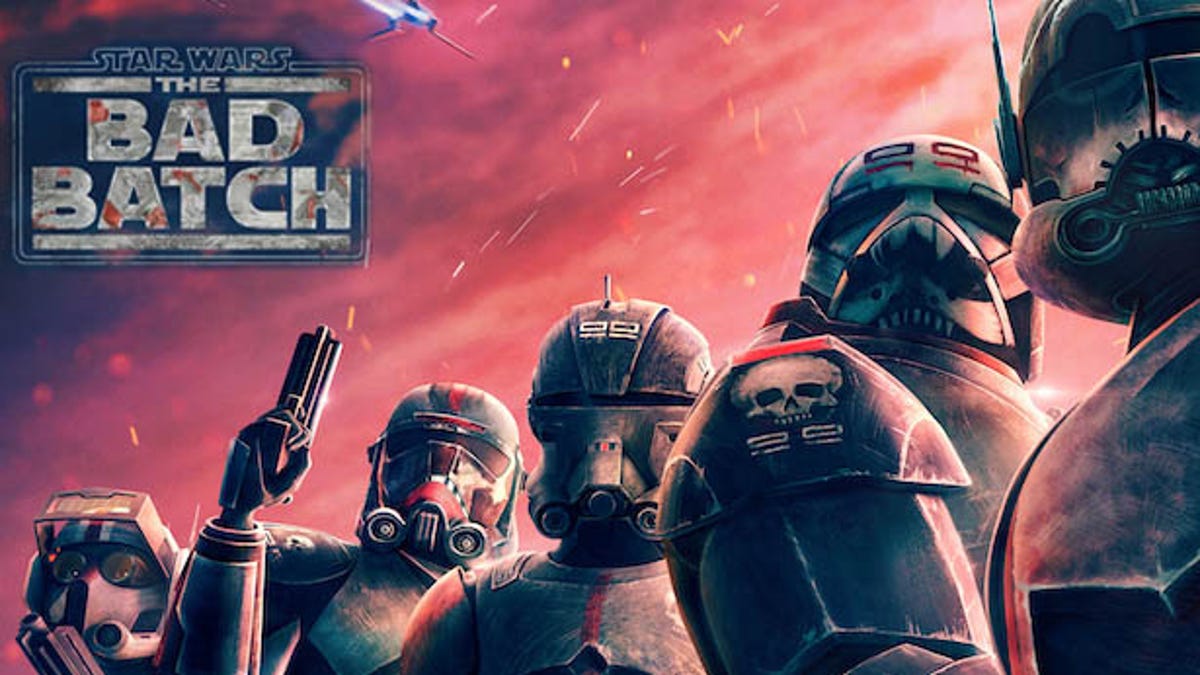










Hi Ashley, thank you so much for reading and we love the feedback. Note that on that day we had 14th posts go up and only ten posts show on the front page, so it's possible the preview had already been archived by the time you got to it. One recommendation would be to add our RSS feed to your favorite news aggregator service like Feedly, this way you get all of the latest posts!